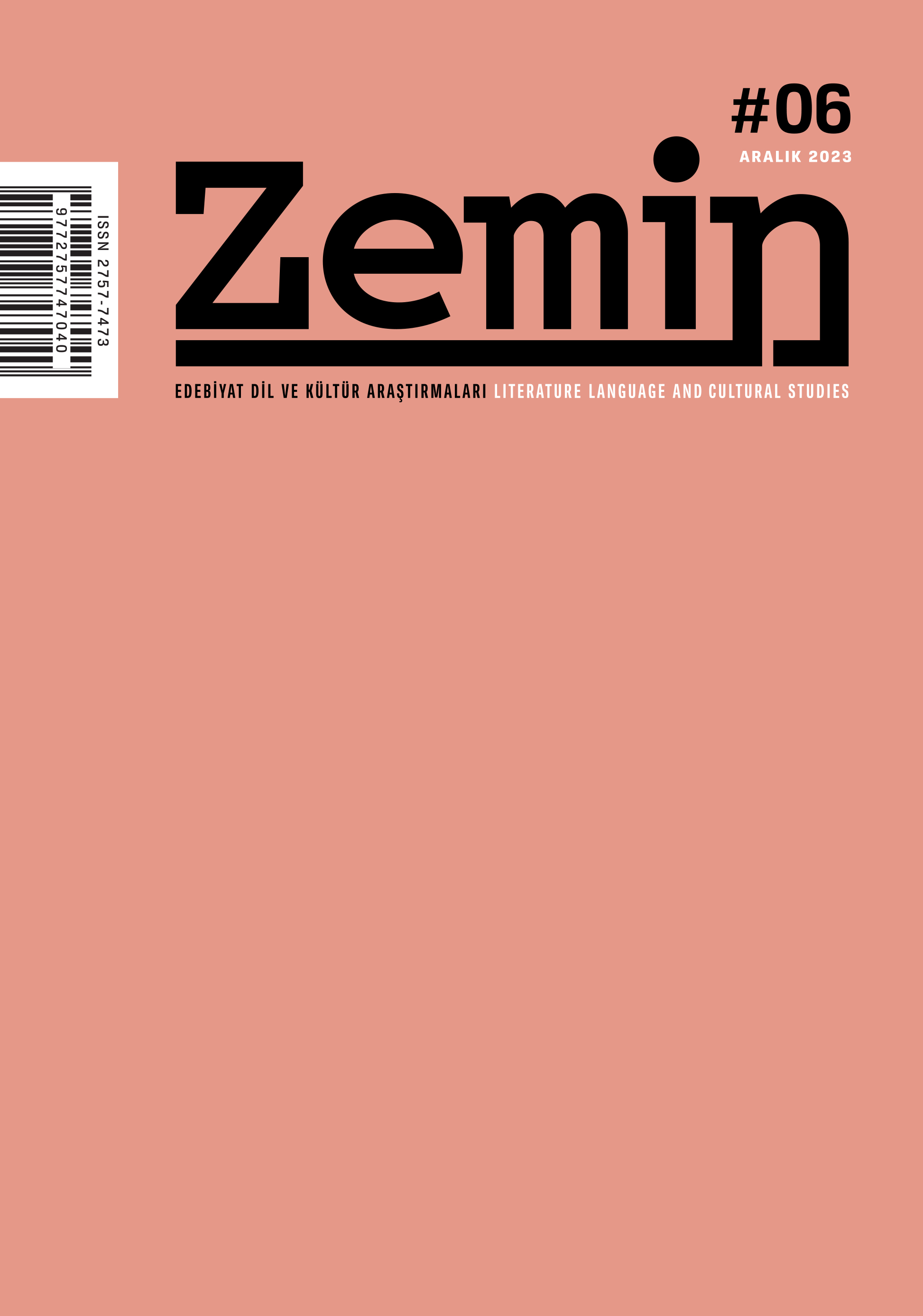Digital Editions and Text Encoding in Ottoman Studies
Text Encoding Initiative-TEI
DOI:
https://doi.org/10.5281/zenodo.10435921Keywords:
Text Encoding Initiative, TEI, Ottoman Studies, digital edition, Digital Humanities, text encoding, GPT, Küçük MecmuaAbstract
The Text Encoding Initiative (TEI) is an international standard that provides a format for encoding texts in the disciplines of history, literature and linguistics. Especially for the big data generated by the vast archives of the Ottoman Empire, the application of TEI technology is critical for the digital reconstruction and analysis of this rich corpus of historical texts. This paper analyses the historical development and scope of the TEI, as well as providing a practical example of how the TEI can contribute to Ottoman studies. In this context, the first issue of Küçük Mecmua, published weekly between 1922 and 1923, is analyzed. Finally, the coded texts were text analyzed with Voyant Tools developed in the field of digital humanities.
References
Akis Projesi, https://dhlab.sabanciuniv.edu/tr/akis-osmanlica-transkripsiyon-araci (erişim 07 Ekim 2023).
Aladağ, Fatma. “Dijital Beşerî Bilimler ve Türkiye Araştırmaları: Bir Literatür Değerlendirmesi.” Türkiye Araştırmaları Literatür Dergisi, s. 18 (2020): 773-796.
Aladağ, Fatma ve Can, Elif Derin. “Programlamadan Yapay Zekâya Osmanlı Türkçesi için Metin Tanıma ve Otomatik Transkripsiyon.” Dijital Beşerî Bilimler ve Osmanlı Çalışmaları, hazırlayan Yunus Uğur, 45-77. İstanbul: Vakıfbank, 2023.
Aladağ, Fatma. “Osmanlı Çalışmalarında GPT’nin Potansiyeli: Evliya Çelebi Seyahatnamesinin NLP ve Metin Madenciliği ile Uygulamalı Analizi ve TEI Yöntemiyle Dijital Edisyonu.” I. Evliya Çelebi Sempozyumu. İstanbul, Ekim 2023 (erişim 30 Kasım 2023).
Bilgin Taşdemir, Esma F. “Printed Ottoman Text Recognition Using Synthetic Data and Data Augmentation.” International Journal on Document Analysis and Recognition, no. 26 (2023): 273-287.
Can, Y. Sait, M. Erdem Kabadayı. “Line Segmentation of Individual Demographic Data from Arabic Handwritten Population Registers of Ottoman Empire.” Document Analysis and Recognition – ICDAR 2021 Workshops, edited by Elisa H. Barney Smith and Umapada Pal, 312–21. Cham: Springer International Publishing, 2021. https://doi.org/10.1007/978-3-030-86198-8_22.
CMO Projesi, https://www.uni-muenster.de/CMOEdition/en/ (erişim 02 Kasım 2023).
Digital Ottoman Corpora, https://www.digitalottomancorpora.org/ (erişim 07 Kasım 2023).
Digital Ottoman Studies, https://www.digitalottomanstudies.com/ (erişim 07 Kasım 2023).
Filiz, Şahin. Küçük Mecmua I-III. Antalya: Yeniden Anadolu ve Rumeli Müdafaa-i Hukuk Yayınları, 2009-2010.
Grallert, Till. https://github.com/tillgrallert/kanun-i-esasi (erişim 04 Ekim 2023).
Gronemeyer, Sven. “Representing the Sung Poetry of Ottoman Art Music in a Critical Digital Edition in TEI XML.” MSGSÜ Sosyal Bilimler Dergisi, s. 27 (2023): 61-90.
Gökalp, Ziya. Türk Medeniyeti Tarihi. İstanbul: Matbaa-i Âmire, 1341 [1925].
Gökalp, Ziya. Türk Töresi. İstanbul: Matbaa-i Âmire, 1339 [1923].
Ide, Nancy M. and C. M. Sperberg-McQueen, “The TEI: History, Goals, and Future.” Text Encoding Initiative Background and Context, edited by Nancy Ide and Jean Véronis, 5-15. Springer, 1995.
IRCICA, https://library.ircica.org/Projects/OttomanOCR (erişim 01 Kasım 2023).
Kahraman, Alim. “Küçük Mecmua,” TDVİA, c. 26, https://islamansiklopedisi.org.tr/kucuk-mecmua (erişim 28 Kasım 2023).
Kırmızıaltın, Süphan and David Wrisley. “Automated Transcription of Non-Latin Script Periodicals: A Case Study in the Ottoman Turkish Print Archive.” Digital Humanities Quarterly 16, no. 2 (2022), https://www.digitalhumanities.org/dhq/vol/16/2/000577/000577.html (erişim 04 Kasım 2023).
LexiQamus, https://www.lexiqamus.com/tr (erişim 04 Kasım 2023).
Matbu Osmanlı Türkçesi Yapay Zekâ Otomatik Transkripsiyon Modeli, https://readcoop.eu/model/ottoman-turkish-print/ (erişim 04 Kasım 2023).
Mecmua Online Projesi, https://mecmua.acdh.oeaw.ac.at/home.html (erişim 04 Kasım 2023).
Muteferriqa, https://muteferriqa.com/ (erişim 04 Kasım 2023).
Nodegoat, https://nodegoat.net/ (erişim 04 Kasım 2023).
OTurC Projesi, https://www.zooniverse.org/projects/skirmizi/ottoman-turkish-crowdsourcing (erişim 04 Kasım 2023).
osmanlica.com, https://www.osmanlica.com/ (erişim 04 Kasım 2023).
QhoD Projesi, https://qhod.net/; https://zenodo.org/records/10182359 (erişim 30 Kasım 2023).
Sperberg-McQueen, C.M. ve L. Bumard. Guidelines for Electronic Text Encoding and Interchange. Chicago and Oxford, 1994.
TEI, https://tei-c.org/ (erişim 13 Eylül 2023).
TEI by Example, https://teibyexample.org/exist/ (erişim 13 Eylül 2023).
TEI Publisher, https://teipublisher.com/ (erişim 13 Eylül 2023).
TEI Viewer, https://alexandermendes.github.io/tei-viewer/ (erişim 13 Eylül 2023).
Vincent van Gogh: The Letters, https://teipublisher.com/exist/apps/vangogh/index.html (erişim 13 Eylül 2023).
Wikilala, https://www.wikilala.com/ (erişim 04 Kasım 2023).
Downloads
Published
How to Cite
Issue
Section
License
Copyright (c) 2023 Fatma Aladağ

This work is licensed under a Creative Commons Attribution 4.0 International License.



